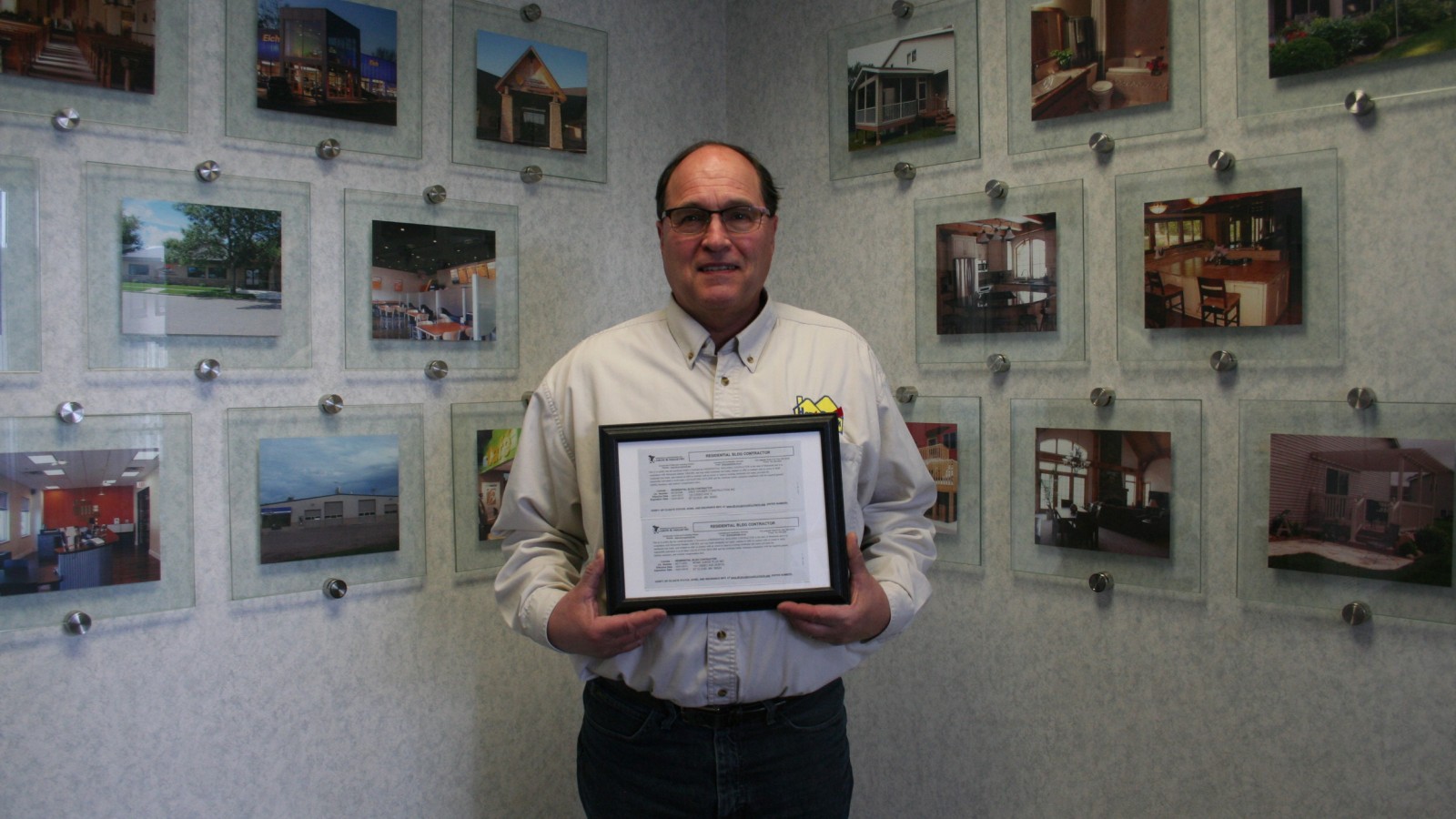A building contractor or remodeler license (RBC) is required for anyone who contracts directly with a homeowner to provide building construction services in more than one skill area. State licensing began in 1992, which is when I received my license.
According to the Minnesota Department of Labor & Industry, to get a license one must…
1. Take and pass licensing exam.
- There is no prerequisite experience or educational requirement to take exam.
- Exam fee is $50.
- The exam consists of 110 multiple choice questions. It is divided into two sections – 1. construction related matters and 2. business & law issues relating to running a construction business in Minnesota.
- Applicants are given four hours to complete the exam.
- A score of 70% or higher is required to pass.
2. Submit a fully completed application packet including:
- License application forms.
- Current Secretary of State filing (if applicable).
- Current liability insurance certificate with proper coverage. Workers compensation is required if you have employees.
- Payment of appropriate fee. The fee depends on gross receipts. Part of the license fee is a Recovery Fund Fee. The Contractor Recovery Fund compensates owners or lessees of residential property in Minnesota who have suffered an actual and direct out-of-pocket loss due to a licensed contractor’s fraudulent, deceptive or dishonest practices, conversion of funds or failure of performance.
RBC licenses are on a two-year cycle. A total of 14 hours of approved continuing education is also required every two years.
The goal of licensing is to ensure a higher level of professionalism and consumer protection. Homeowners who do not hire a licensed contractor have no protection.
Personally, being a licensed residential building contractor means I am committed to doing things the right way — we will provide quality workmanship that is according to code & written industry standards and I will operate my business legally & ethically…so we can display our license number proudly.
-Dale

